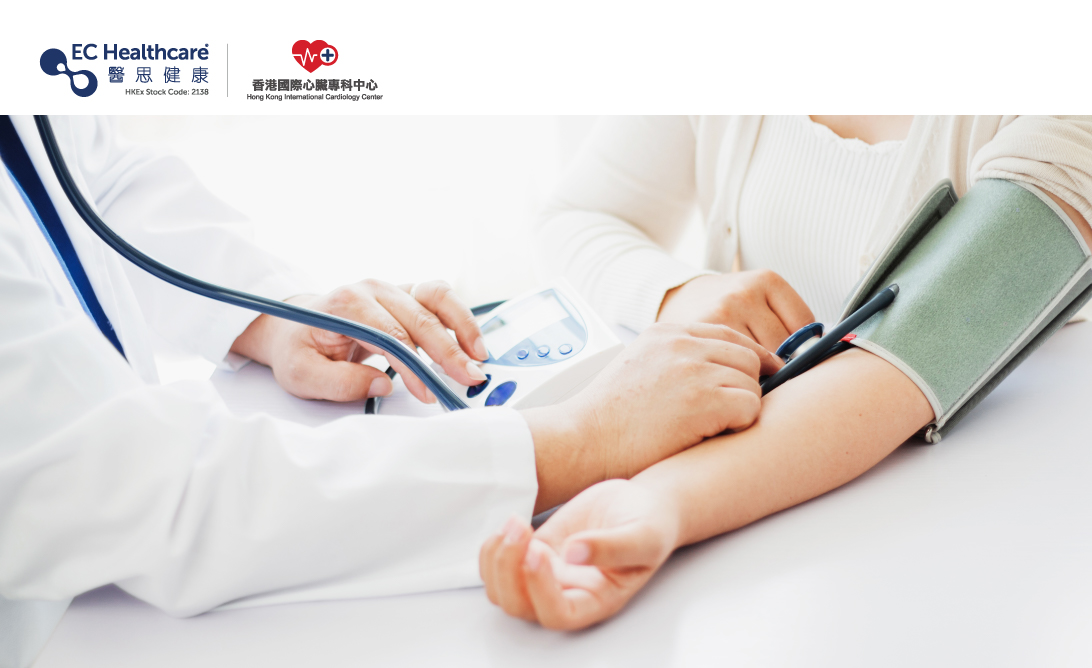High Blood Pressure Screening


In Hong Kong, nearly 50% of the elderly population and about 30% of middle-aged individuals have high blood pressure. The condition often presents without obvious symptoms, leading to a gradual worsening of the situation. It is only when complications such as heart disease or stroke arise that individuals become aware of their condition. That's why high blood pressure is known as the "silent killer".

What is Blood Pressure?
Blood pressure is the force exerted by blood against the walls of arteries as it flows through them. When the heart pumps blood into the arteries, it creates systolic pressure, representing the pressure during contraction. Diastolic pressure, on the other hand, is the pressure when the heart is at rest and blood flows back into the heart. These two values reflect the pressure exerted on the blood vessels during the relaxation and contraction of the heart. Variations in pressure levels give rise to conditions such as high blood pressure and low blood pressure (hypotension).
Definition of High Blood Pressure
According to the World Health Organization, high blood pressure, or hypertension, is defined as a condition in which the systolic blood pressure remains consistently at 140 millimeters of mercury (mmHg) or higher and/or the diastolic blood pressure remains consistently at 90 mmHg or higher in adults at rest.
However, blood pressure is not a fixed value and can fluctuate depending on an individual's state. For example, it may rise during exercise or physical activity and increase during moments of excitement or stress, only to decrease when one is calm. Therefore, it is important to measure blood pressure multiple times to understand the average trend and make a proper diagnosis of hypertension.
High Blood Pressure Screening
The most common method of screening for high blood pressure is using a blood pressure monitor. It involves inflating a cuff around the upper arm using an air pump to temporarily restrict blood flow in the brachial artery. The pressure is then gradually released until blood begins to flow through the artery, allowing the measurement of systolic and diastolic blood pressure as well as pulse rate.
Regular blood pressure monitoring is advised for adults as high blood pressure may not present obvious symptoms:
| Blood Pressure Classification | Blood Pressure Levels (mmHg) | Recommendation | |
| Systolic Pressure | Diastolic Pressure | ||
| Ideal | <120 | <80 | Recheck in 2 years (Annually for individuals aged 75 and above) |
| Norma | 120-129 | 80-84 | Annual check-up |
| Elevated | 130-139 | 85-89 | Check-up every 6 months |
| High | ≥140 | ≥90 | Schedule an appointment with your primary care physician soon |
Factors Contributing to High Blood Pressure
More than 90% of cases of high blood pressure are classified as primary hypertension, where the exact cause cannot be identified. However, several high-risk factors increase the likelihood of developing high blood pressure:
- Obesity
- Long-term consumption of high-sodium (salt) foods
- Smoking
- Excessive alcohol consumption
- Inadequate sleep
- Lack of physical activity
- Excessive mental stress
- Family history of hypertension
- Aging
Preparation for Blood Pressure Measurement
- It is best to measure your blood pressure in the morning just after waking up and in the evening before going to bed, consistently at the same time each day.
- Measure your blood pressure before taking any antihypertensive medications.
- Rest quietly for 3 to 5 minutes before measuring your blood pressure.
- If you have recently engaged in physical activity, been in a rush, eaten a meal, or taken a shower, take a rest for 10 to 15 minutes before measuring your blood pressure.
- Avoid smoking, drinking tea, coffee, and other stimulating beverages that contain alcohol.
- Sit comfortably in a chair with your upper body upright and supported by the backrest.
- Keep your feet flat on the ground and uncrossed.
- Refrain from talking during the blood pressure measurement.
- Ensure that your arm is at the same level as your heart, palm facing upward, relaxed, and not clenched during the measurement.
Preventing High Blood Pressure
Related Brands



